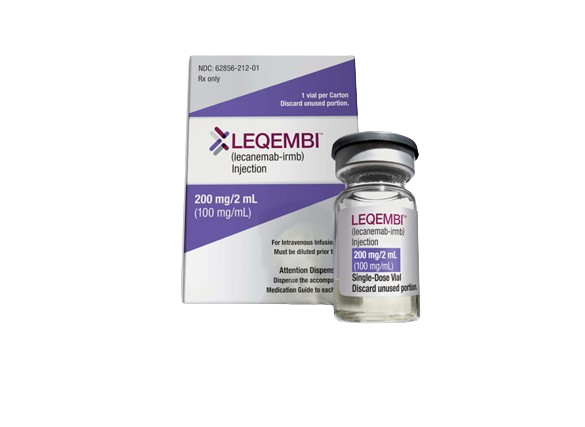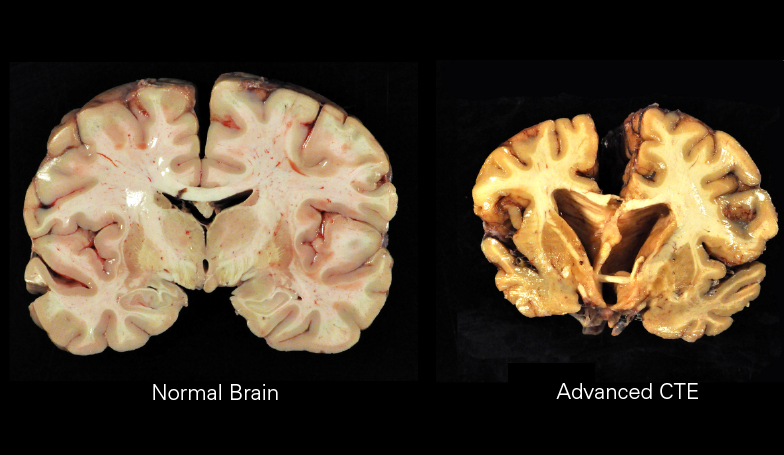CAN DEMENTIA BE CURED: NEW DRUG WITH NEW WARNINGS
CNN recently featured its medical expert, neurologist Sanjay Gupta, narrating a very thorough documentary entitled "The Last Alzheimer's Patient" which, over a 5 year period, collected data on the latest research related to dementia, highlighting advances in new medications as well as in lifestyle changes, both of which offer promising developments that may, in some cases, reverse or, at least stop the advance of Alzheimer's, the most common form of dementia. What is Alzheimer's Disease (AD)? According to the Yale School of Medicine, AD "is a progressive disorder that damages and destroys nerve cells in the brain. Over time, the disease leads to a gradual loss of cognitive functions, including the ability to remember, reason, use language, and recognize familiar places. It can also cause a range of behavioral changes."

The Food and Drug Administration (FDA) recently granted full approval to a new Alzheimer’s treatment called lecanemab, which has been shown to moderately slow cognitive and functional decline in early-stage cases of the disease. “It’s very exciting because this is the first treatment in our history that shows an unequivocal slowing of decline in Alzheimer’s disease,” says Dr. Christopher van Dyck of Yale who was the lead author on the research behind the clinical trials of the drug, which slowed clinical decline by 27% after 18 months of treatment compared with those who received a placebo. Sold under the brand name Leqembi™ and made by Eisai in partnership with Biogen Inc., the drug is delivered by an intravenous infusion every two weeks. Lecanemab works by removing a sticky protein from the brain that is believed to cause Alzheimer’s disease to advance. This is the first time in two decades that the FDA has granted full approval to a drug for Alzheimer’s, but there is also a “black box” warning on the medication—the agency’s strongest caution—because of safety concerns. While 96% of the effects related to the drug's infusion were such transitory symptoms as chills, aches, fever and rash, the FDA's "black box" warning alerted consumers about the risk of brain swelling and bleeding and that people with a gene mutation that increases their risk of Alzheimer’s disease are at greater risk of brain swelling on the treatment. The label also cautions against taking blood thinners while on the medication.

In addition to advances in drug treatment for AD, Dr. Gupta's documentary featured new research published by Dr. Dean Ornish, the founder and president of the nonprofit Preventive Medicine Research Institute in Sausalito, CA and clinical professor of medicine at the University of California, San Francisco. Dr. Ornish's work has focused exclusively on lifestyle changes that can either prevent, slow down or, in some cases, reverse the symptoms of AD. Some of the strongest evidence modifying risk factors for AD and other dementias comes from research that links brain health to heart health. The risk of developing AD or vascular dementia appears to increase with many conditions that damage the heart and blood vessels. These include:
- Diabetes
- Mid-life high blood pressure
- High cholesterol
- Midlife obesity
- Smoking
- Physical inactivity
- Poor diet
- Stress
- Lack of quality social interaction
Dr. Ornish and his colleagues found that lifestyle changes that address the risk factors for heart disease can prevent, and even reverse, it. The same lifestyle changes that reverse heart disease can also prevent AD and vascular dementia. Based upon his research, he recommends the following 9 steps which he claims will "ward off" dementia:
- Stay physically active. Walking, bicycling, gardening, tai chi, yoga and other exercise of about 30 minutes a day will provide a good blood flow to the brain and encourage new brain cell growth.
- Stick with a brain-healthy/heart-healthy diet. Limit the amount sugar and saturated fats you eat. Make sure to eat plenty of fruits, vegetables and whole grains.
- Stop smoking.
- Maintain a healthy weight.
- Stay socially active. Take a class at the local library or community college, volunteer, or just hang out with friends.
- Stay mentally active. Exercise your brain on a daily basis. Engage in mentally challenging work or other activities, like learning a foreign language, puzzles or games with friends.
- Get more quality sleep. Try for at least seven to eight hours a night. If you need help, free guided meditation apps are available on your smart phone, like “Insight Timer.”
- Limit alcohol consumption. If you drink alcohol, stick with no more than two drinks per day.
- Protect your head. Buckle your seat belt, wear your helmet when participating in sports, and “fall-proof” your home. Make sure floors are uncluttered, remove or tack down all scatter rugs, avoid using slippery wax on floors, and slip-proof the tub. Make sure the bath mat has a nonslip bottom and remove electrical or telephone cords from traffic areas.
Dr. Ornish' research suggests that combining good nutrition with mental, social and physical activities may have a greater benefit in maintaining or improving brain health than any single activity. A two-year clinical trial of older adults at risk for cognitive impairment showed that a combination of physical activity, nutritional guidance, cognitive training, social activities and management of heart health risk factors slowed cognitive decline.
As the Warnings Doctor, I applaud Dr. Sanjay Gupta for bringing attention to a disease that now afflicts 5 million Americans with one new case diagnosed every 66 seconds in our country, a disease, however, which now may have a promising future as far as potential treatments and lifestyle changes that may slow or even, perhaps, reverse its course.














